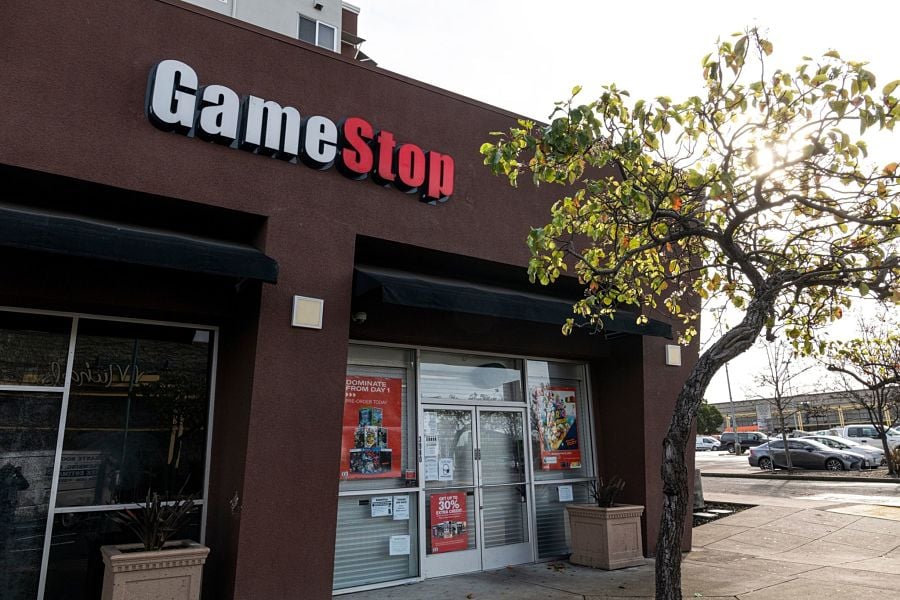

A House hearing this week on the recent GameStop trading frenzy didn’t produce definitive conclusions on the extent to which retail investors were hurt and who is to blame. But the session did foreshadow a deep partisan divide on any legislative response.
On Thursday, the major players in the so-called short squeeze that sent GameStop and shares of other faltering companies soaring and then plummeting appeared before the House Financial Services Committee. They included the chief executive of Robinhood Markets Inc., Vladimir Tenev; Steve Huffman, chief executive and co-founder of Reddit; and Keith Gill, the catalyst in the Reddit forum where retail investors drove up the value of GameStop.
Over the course of the five-hour meeting, lawmakers raised questions about short selling, the use of payment for order flow, gamification of trading, potential stock manipulation, trading halts, broker capital requirements and other issues that could cause volatility and potential investor harm.
The atmospherics of the hearing suggested that if legislation emerges to address some of these topics, it likely will split Democrats and Republicans. That would make it difficult to get bills through a House with a narrow Democratic majority and a Senate controlled by Democrats based on the vote of Vice President Kamala Harris.
During the House hearing, Democrats homed in on investor protections while Republicans pushed for more investor autonomy in buying and selling shares.
Republicans implied Democrats were trying to score political points with their pointed questioning of Tenev and the chief executives of Citadel and Melvin Capital Management. “Political theater for the most part — that’s what this hearing is today,” said Rep. Bill Huizenga, R-Mich. and one of the top-ranking Republicans on the committee.
Committee chairwoman Maxine Waters, D-Calif., pushed back against that notion and warned colleagues not to impugn their colleagues’ motives. “This is not political theater at all,” she said. “This is serious oversight responsibility.”
In a conference call with reporters after the hearing, Waters said Democrats and Republicans view Wall Street differently. “That kind of tension is ordinary and expected,” she said. “I don’t know that we will come up with legislation that will have bipartisan support.”
She added that members of both parties thanked her and the committee’s ranking member, Rep. Patrick McHenry, R-N.C., for holding the hearing.
Right from the start of the hearing, Waters and McHenry framed the GameStop situation differently.
“In this instance, many retail investors appeared motivated by a desire to beat Wall Street at its own game,” Waters said in her opening statement. “And, given the losses that many retail investors have sustained as a result of volatility in the system, there are many whose belief that the system is rigged against them has been reinforced.”
McHenry touted the GameStop phenomenon as a sign that retail investors can take care of themselves and that they should be given greater latitude in how they invest — including in private markets.
“I think if we’ve learned anything from the past few weeks, it’s that these average everyday investors are pretty darn sophisticated,” McHenry said in his opening statement. “Americans are far more sophisticated, informed and capable than folks in D.C. give them credit for. It’s time our securities laws treat them that way.”
Waters said she plans two more hearings on the GameStop trading.
“By the third hearing, we will have a clear understanding of what happened and what action needs to be taken,” she told reporters. “We learned an awful lot [in Thursday’s hearing]. But there’s a lot more to learn.”

Chasing productivity is one thing, but when you're cutting corners, missing details, and making mistakes, it's time to take a step back.

It is not clear how many employees will be affected, but none of the private partnership’s 20,000 financial advisors will see their jobs at risk.

The historic summer sitting saw a roughly two-thirds pass rate, with most CFP hopefuls falling in the under-40 age group.

"The greed and deception of this Ponzi scheme has resulted in the same way they have throughout history," said Daniel Brubaker, U.S. Postal Inspection Service inspector in charge.

Elsewhere, an advisor formerly with a Commonwealth affiliate firm is launching her own independent practice with an Osaic OSJ.
Stan Gregor, Chairman & CEO of Summit Financial Holdings, explores how RIAs can meet growing demand for family office-style services among mass affluent clients through tax-first planning, technology, and collaboration—positioning firms for long-term success
Chris Vizzi, Co-Founder & Partner of South Coast Investment Advisors, LLC, shares how 2025 estate tax changes—$13.99M per person—offer more than tax savings. Learn how to pass on purpose, values, and vision to unite generations and give wealth lasting meaning
